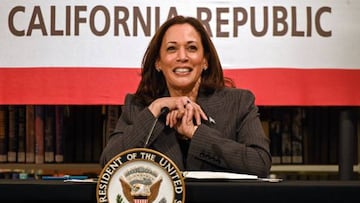2023 International Women’s Day: Who are the most powerful women in the United States?
The politics surrounding International Women’s Day in the US highlight the limits of representation politics in acheiving gender equality.


International Women’s Day is just days away, with communities around the world preparing their festivities set for March 8th. However, in the United States, the day does not hold the same importance it does in many other countries.
In Cuba, Montenegro, Nepal, Russia, Tajikistan, Turkmenistan, Uganda, Ukraine, Uzbekistan, and Zambia, among others, International Women’s Day has been declared a public holiday in the country.
A short history of International Women’s Day
The origin of the holiday can be traced back to protests led by the Socialist Party of America in New York City in 1909. The protests were planned a year after garment workers, the majority of which were women, led a strike demanding better conditions.
The following year, the celebrations reached Europe. At a meeting of the Socialist International, Women’s Day was established “to honour the movement for women’s rights and to build support for achieving universal suffrage for women.”
Later, the date became a rallying cry for women in Russia who were fed up with the death and destruction World War I brought to their society. Many women used the rallying cry of “Bread and Peace,” and just a few days after the massive wave of protests, “the Czar abdicated and the provisional Government granted women the right to vote.”
Roe v. Wade and International Women’s Day in the United States
Last year, the Supreme Court took the dramatic step of overturning Roe v. Wade, which in 1973 established a minimum level of protection for abortion access in the US. International Women’s Day aims to raise awareness of ongoing fights for reproductive rights. The action taken by the country’s highest court may motivate a greater number of protests and celebrations this year.
The fact that raising attention to the plight of many people who are seeking abortion care and are denied highlights a major ideological divide between the US and many of its closest allies. Largely, International Women’s Day fits within a broad feminist tradition, automatically turning many on the right of the US political spectrum against the holiday. This fact perfectly encapsulates the ways in which access to power by members of a certain social group does not mean liberation for fellow members of that group. In other words, just because the US has women in key positions of power does not mean that the lives of women and girls are automatically better. Aside from Vice President Kamala Harris, there are few women in major positions of power at the national level. The Speakership was transferred from Democrat Nancy Pelosi to Republican Kevin McCarthy, and in the Senate, Chuck Schumer serves as Majority Leader and Mitch McConnell as Minority Leader.
But even if all of these positions were occupied by women, would there be a major difference in the quality of life of women and girls?
Four of the twelve women governors currently serving are Republicans: Kay Ivey in Alabama, Kim Reynolds in Iowa, Sarah Huckabee-Sanders in Missouri, and Kristi Noem in South Dakota. All of these leaders applauded the Supreme Court’s decision to strip away the constitutional right to an abortion. In speaking with CNN’s Dana Bash, Gov. Noem would not say she supported the right of parents to allow their ten-year-old daughter, that had been molested and raped, to receive an abortion.
Related stories
When Supreme Court Justice Ruth Bader Ginsberg passed away weeks before the 2020 Election, and Amy Coney Barrett was nominated as her replacement, liberals and progressives criticized the Trump administration’s choice. Gov. Huckabee Sanders bashed liberals in response, saying they should be “applauding” Coney Barrett because she was “a working mom with impeccable legal credentials.”
If liberals actually cared about empowering women, they’d be applauding Judge Amy Coney Barrett - a working mom with impeccable legal credentials - not denigrating her with bigoted attacks on her Christian faith.
— Sarah Huckabee Sanders (@SarahHuckabee) September 25, 2020
Progressive feminists responded by calling attention to the threat Justice Coney Barrett would pose to the rights of bodily autonomy that have made it easier for women to control their own destinies and future. Feminists of a more left-leaning variety do not see the fact that women work full time and complete most of the domestic work as a win for the gender. Instead, they believe that society must begin to value the unpaid care labor that, in many households, is completed by women to reduce the societal burden they are currently carrying.

